Derek Trucks’ top 5 tips for guitarists
Tedeschi Trucks Band slide king on playing live and storytelling solos
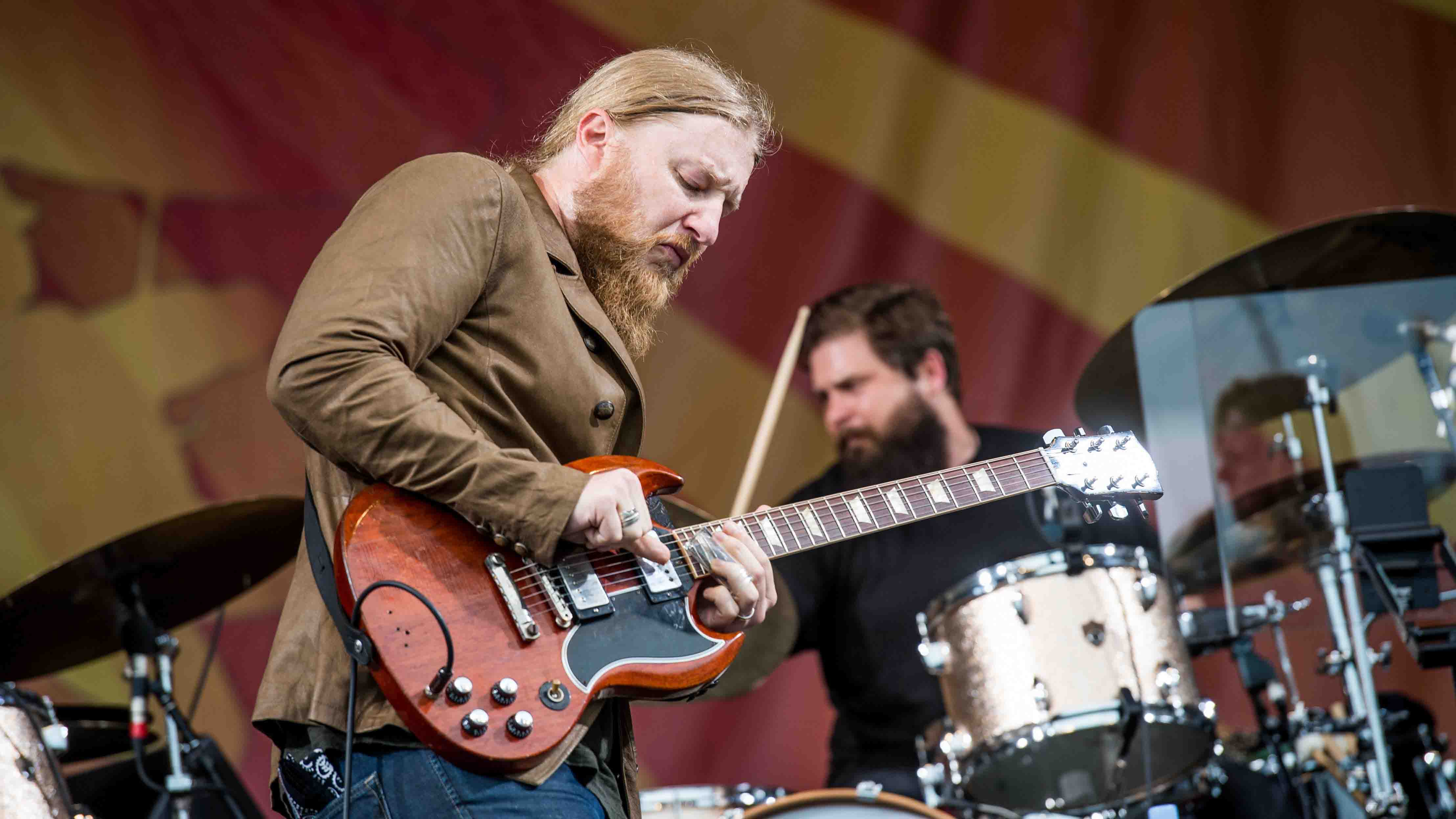
When it comes to killer live albums, there are a few that are regularly raved about with impassioned fervor. The Who’s Live at Leeds, B.B. King’s Live at the Regal, James Brown’s Live at the Apollo and The Allman Brothers Band’s At Fillmore East oft come up somewhere near the top of the pile.
Tedeschi Trucks Band, the virtuosic ensemble headed up by husband and wife team Derek Trucks and Susan Tedeschi, have just released the Live From The Fox Oakland album and DVD, and it’s arguably one of the greatest live long-players to be captured in decades.
Slide guitar maestro Trucks is understandably incredibly proud of it.
“I’m excited to get it out there,” Trucks tells us.
“You hope to catch the band on a good night and you hope that it sounds good when you hear the tapes back, and you hope that when you mix it you still have the feeling that you had when you were onstage, but it seems like it never quite works out that way! There's usually one of the elements missing, but it all seemed to line up this time.
“We spent a long time mixing it and making sure that we didn't lose that feeling, and we went back to the drawing board once after about five or six days of mixing because we just felt like it didn't feel live enough. We then went back and spent more time on the sounds of the room microphones and maybe just pushing it more and more so you felt like you were in the room.
“We spent a long time in the studio just tweaking it and, every once in a while, I'd walk out there and listen to a mix and - whether it was Bird On The Wire or Keep On Growing - I could sit there and actually get lost in it and feel like I was onstage. That's a good feeling.
“That's not the case usually… but this one felt really good. It's so hard to get everything sounding the way you hear it in your head, but I feel like we got there this time. It felt really musical when we’d finished it up and it came back. I just feel like it's a real honest representation of what the band is right now... and that's all you can ask for."
How far can having a film crew onstage potentially affect a live performance?
“That’s partly why we did two nights at The Fox, and the show was affected the first night,” explains Derek.
“I've done this a handful of times over the last 10/15 years with my solo band and this group, and I always remember that no matter how much you try to pretend that there's no cameras there, you're not used to them for the first half of the show. You know they’re there, but then you finally feel this wave comes off the band and everyone just reverts back to the way we play.
In a lot of ways, that was the best show of that whole run and one of the best shows we've ever played as a band, so to be able to capture it was pretty unique
“I talked about this with the film guys and with Blake [Budney], our manager, and we decided that we would film two nights. We weren’t thinking the first night was a throwaway but just, 'You know, if it happens the first night - great - but, if not, we're kind of banking on the second one. That's where the focus is.’
“The first night was good but it wasn't great. It was tight and you felt that. You felt the cameras. You felt everybody trying a little too hard in a weird way, and there was just too much activity backstage. The camera crew were in all the dressing rooms and everybody had friends and it was just mayhem.
“When we hit the stage, it just didn't feel like the band that I knew from the rest of the tour up to that point and so, right when the show was over, we had a little quick meeting with production and then with the band. We said, ‘Tomorrow, dressing rooms are off limits! You can bring a guest but if you leave they leave! No stragglers! It's going to be quiet back here. It's going be like every other show of the tour and the camera crew need to just stay out the way when we're getting setlists together and things… we're playing a gig tonight, so leave us alone!’
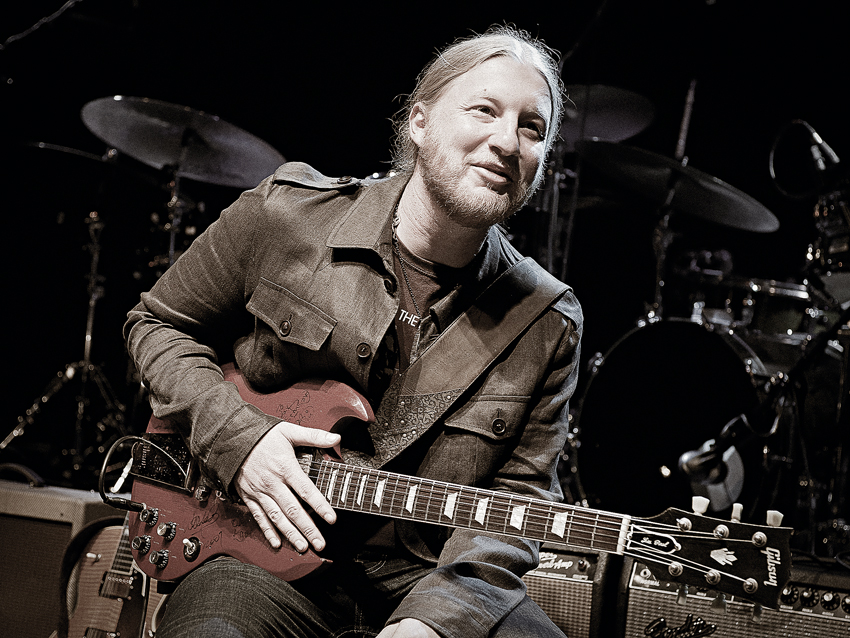
“Basically... we hit the stage the second night and it was just night and day from the first note. By the second tune of the show, you could just feel this wave through the whole band and I was like, ‘Oh yeah - this is the band I know!’ In a lot of ways, that was the best show of that whole run and one of the best shows we've ever played as a band, so to be able to capture it was pretty unique.
“I think the first show being tight maybe added to that, because there was like this pulling back on the bow string the second night. On the second song, all that tension was let go and everybody was freed up and everybody played loose and everybody was in their element. There was some real music and some real magic captured on that second show.”
Amen to that. Just ahead of opening up on his top 5 guitar tips, Trucks happily runs us through the gear he used at The Fox.
“I just used this Alessandro amp,” he says.
“George Alessandro in New Jersey builds these great amplifiers. He was working on my Super Reverbs for years and he's kind of a vintage Marshall specialist. He built this amp and it’s kind of a cross between a Dumble and a Super Reverb but a little juiced up with a little more power. I think it's maybe 60 watts or something like that. I love it. It's a great-sounding amp.
“I just used that and an SG. I used a '57 Les Paul on one track, These Walls, which features Alam Khan on sarod. I tuned it way down because the sarode is naturally in C but I tuned the guitar down to D and he came up to D. It was all a pretty simple setup.”
The Live From The Fox Oakland album and DVD by Tedeschi Trucks Band is out now via Fantasy Records.
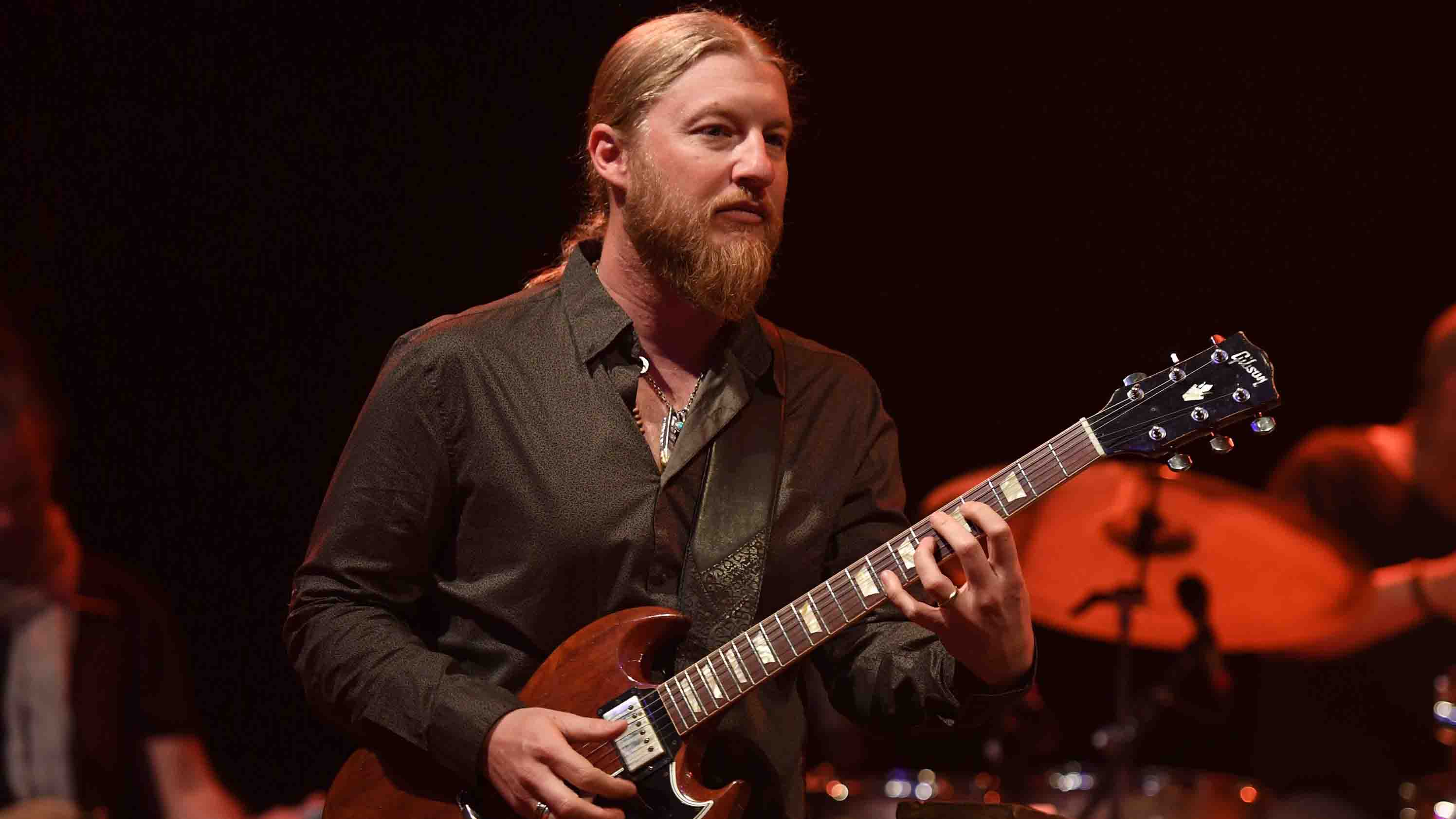
1. Don’t just listen to guitar players
“For me, one of the things that I love the most about my guitar heroes - whether it's Duane [Allman] or Albert King or Bill Frisell - is that they sound like musicians. They sound like they're singing through their instruments. They sound like they listen wide.
I think there's a wave of guitar players that just sound like every guitar player that's ever played… it's important to take a break from it occasionally and listen around
“I think there's a wave of guitar players that just sound like every guitar player that's ever played. Obviously, we're going to have our idols and we're going to have guitar players that we listen to and that's great, but I think it's important to take a break from it occasionally and listen around. Listen to vocalists or horn players or other instruments.
“When I'm playing, more often than not, I'm thinking about melodies. I’m not thinking patterns; I’m thinking as a singer. Even if you're not singing onstage, you should be singing through your instrument.
“I sat in on some [Hindustani classical musician] Ali Akbar Khan classes at his college in San Rafael [California], and he would make all the instrumentalists take the vocal classes. He would make you learn to sing these ancient melodies so you knew them in your bones and then, when you played them, you’d just have a totally different take, just in terms of the way you enter a note or exit a note or the inflections.”

2. When you’re soloing, tell a story
“This comes from a great Elvin Jones quote. He’d say, ‘When you’re playing and when you’re soloing, always tell a story.’ You hear it in the great musicians, whether it's a drummer or a horn player or a guitar player - you hear them take those breaths. You can feel that there's something they're trying to tell you.
“It’s emotion. It could be a literal story you have in mind that you could be telling, but it's important that it's not just a pile of things that you practise that you think are cool. You really should be trying to express something.
“You hear a great Art Blakey drum solo or Elvin Jones, and you can tell when they're taking a breath. You can tell when they're loading up for something big. There's just this humanity in it, and I think that's important as well. I think telling a story and taking a breath is important.”
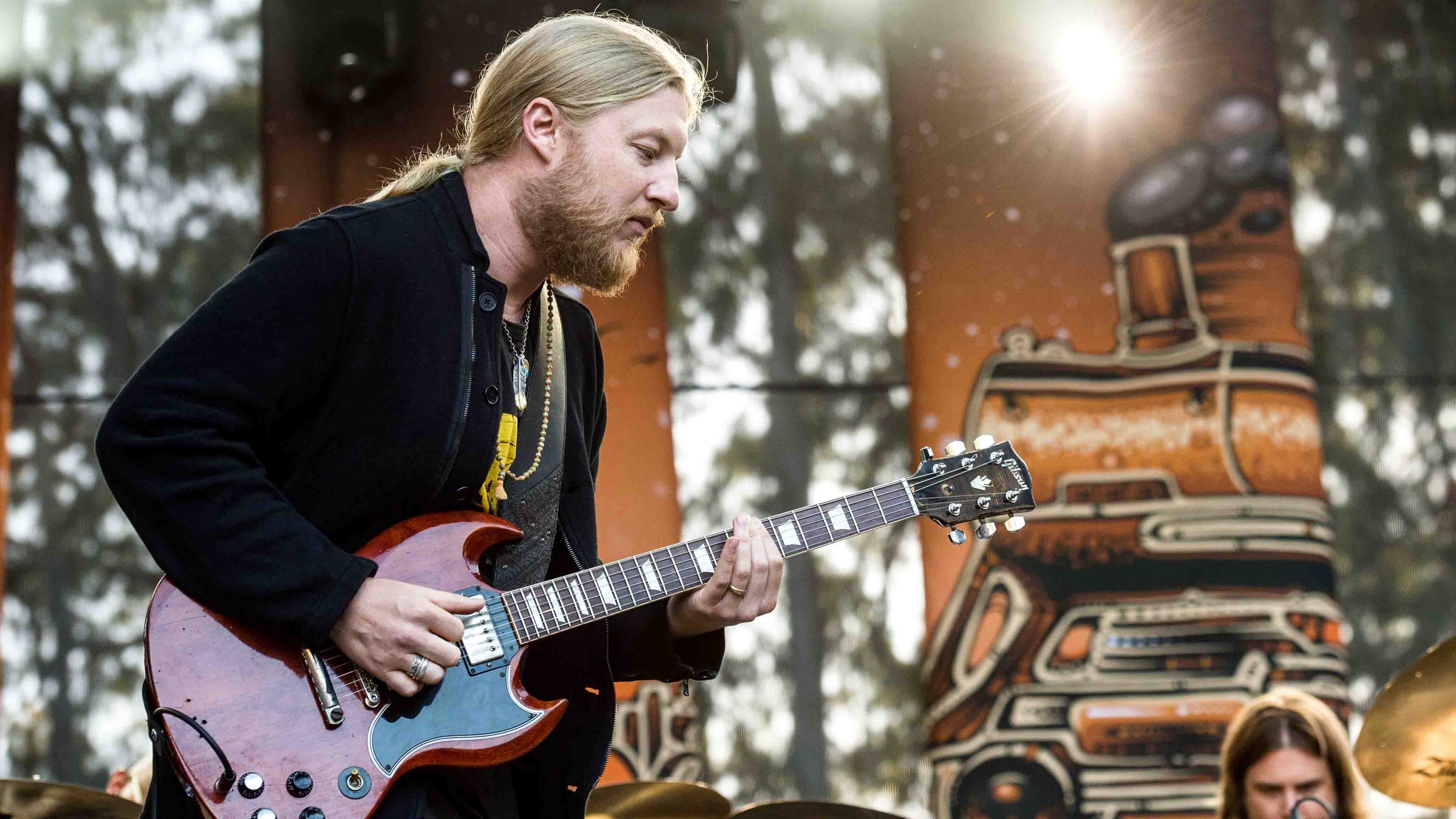
3. Tone isn’t so much to do with gear
“Tone is such an important thing, and it really doesn't have much to do with the gear. It's in your hands for the most part. If you pick up an acoustic instrument and you can get a certain feeling or sound or fire with your playing, I think that it generally translates to an electric guitar when you’re plugging into an amp.
Your tone is something that is somewhat innate and it's something that you hear in your head, and it's less to do with gear
“I think your tone is something that is somewhat innate and it's something that you hear in your head, and it's less to do with gear - although there’s no doubt that gear gets you there if you’ve got something in mind.
“I always think of Hubert Sumlin, the great guitar player in Howlin' Wolf's band. I remember hearing all those old recordings and then I would see footage, and it would just be this strange guitar and amp combo that I didn’t know existed. They were probably worth 30 bucks apiece, and I remember wrongly thinking at the time, 'You can only get that sound playing those instruments. You’ve got to have some weird Sears, Roebuck setup.’
“Then, years later, we did this festival and I'm in the dressing room with Hubert and there's this brand new Gibson on a stand with a tag on it and maybe a Line 6 or just some modern amp there. Having never seen that instrument or that amp before, [Hubert] just plugged in and started playing, and it was the same damn sound! It just hit me: ‘It's just him! It's just his hands!’”
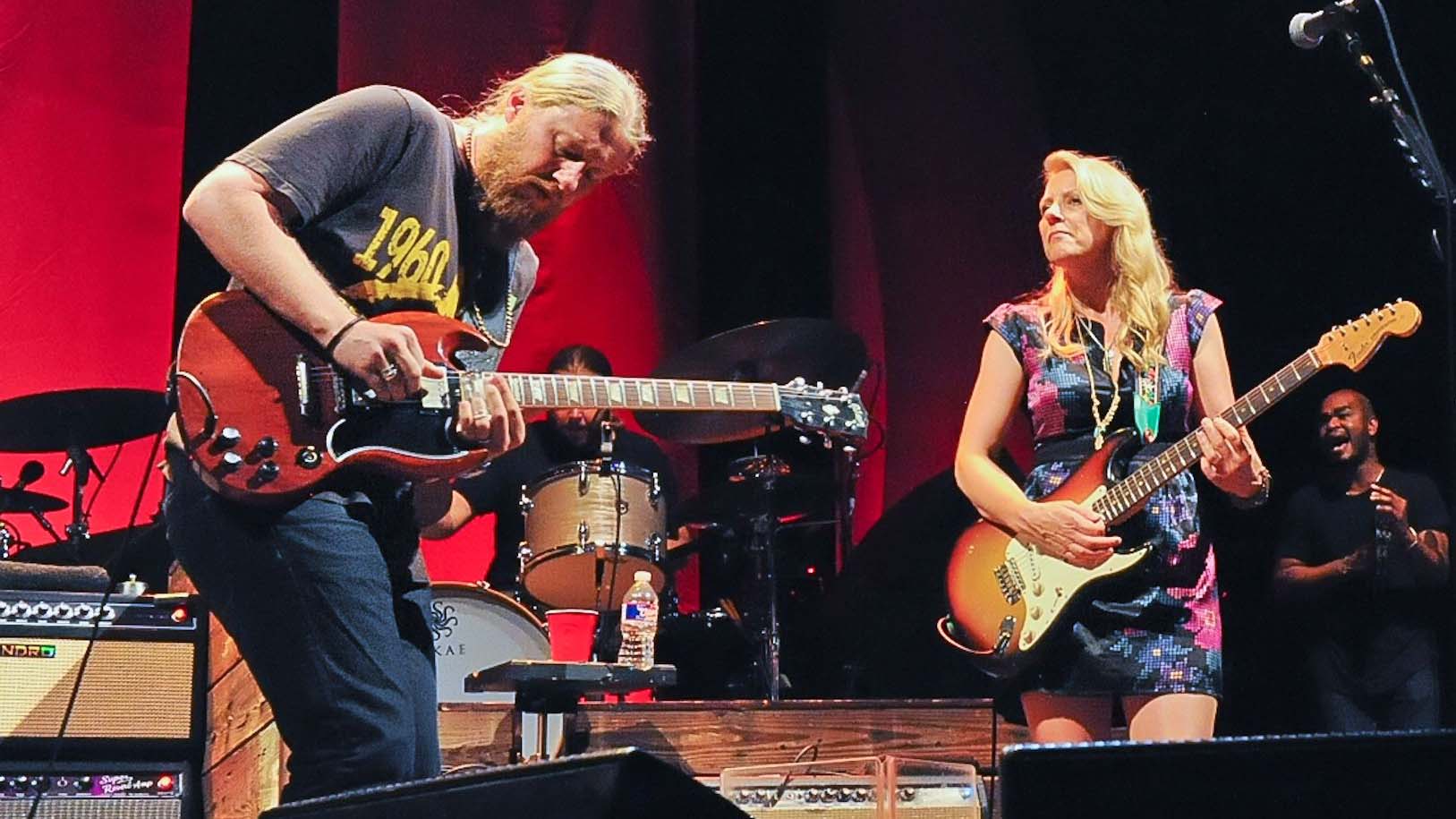
4. Keep your ears open
“There's so much to learn from every instrument you hear, every band you hear, and even people's speaking voices. I pick up cues on that stuff all the time. When someone interesting is speaking, there are little ticks and cues and things you can pick up and totally sneak into your playing.
“Whether it's something like that or Indian classical music or just listening really far and wide, I think that's what makes a unique player: having a huge palette to draw from.
Think about someone like Hendrix… what set him apart was just there was a mystery in his playing, and it came from all the weird shit he listened to
“I mean, you think about someone like Hendrix. Everyone copies his playing, and everyone goes to the same places. You learn Voodoo Chile and you get a wah-wah pedal and it's awesome because those songs are fun as hell to play, but what set him apart was just there was a mystery in his playing, and it came from all the weird shit he listened to.
“He grew up in the States and travelled the deep South and heard all these blues artists, but he was listening to Ravi Shankar and he listened to Holst's symphony of The Planets, and he was listening to all this great music like Mahler. There's so much to be learned from listening really wide. Throw the net big and wide!”
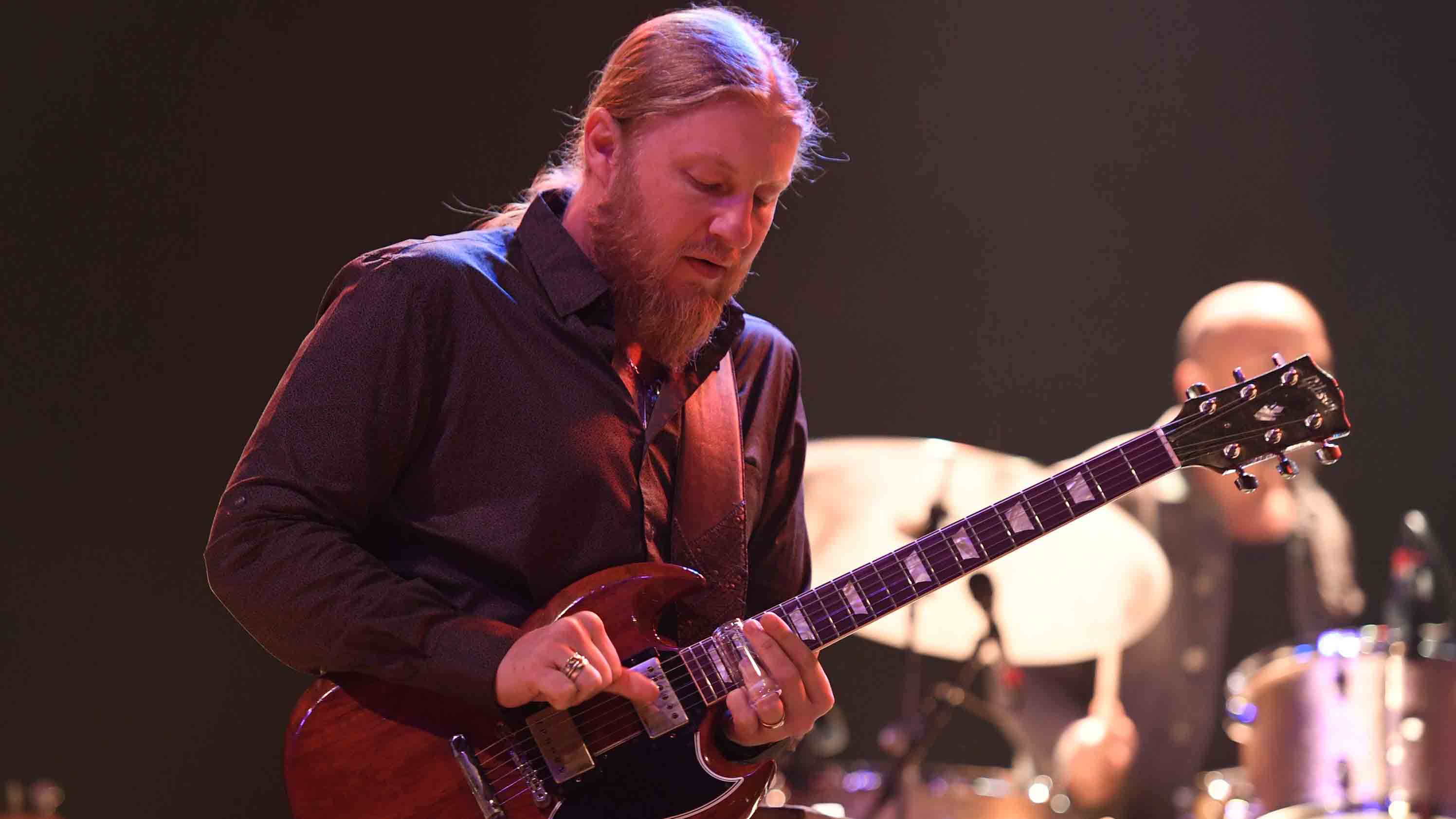
5. Have patience and keep working at it
“I think guitar players, more than most other instruments, can easily fall into the trap of it becoming more about technique and gear and who's flashiest and who has the most instruments and all that bullshit. The stuff that's going to last is the really honest, pure, humble sounds.

“When you hear BB [King] play one note, you just hear humanity in that stuff, and that never goes away. Simplify it and find your own voice and then keep working at it. Sometimes it works, sometimes it doesn't. You know, we're on the road 300 days a year sometimes and there'll be one night when your amp and guitar sound perfect and you think you've nailed it, and then the next show, it feels like the first gig you've ever done! Back to the damn drawing board!
“Don't be in a rush! Have patience. The beauty of music and playing guitar is you can do it forever. It's not sports, where you have a shelf life. If I was a professional athlete, this would probably be my retirement tour, because I’m 37. It's amazing to see Les Paul up there in his '90s and even BB at the end, just getting to see those guys keep rolling. We're lucky to do what we do for a living.”